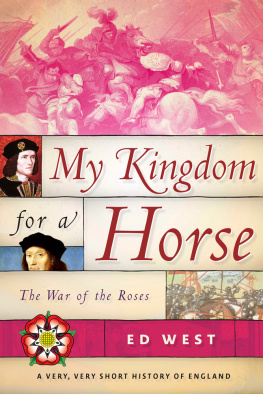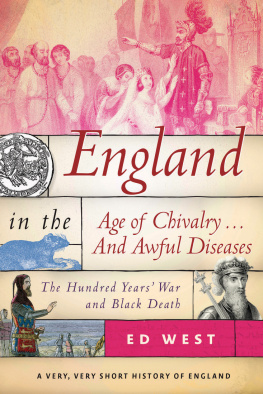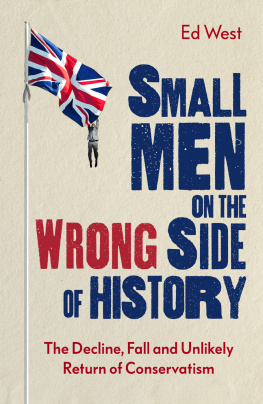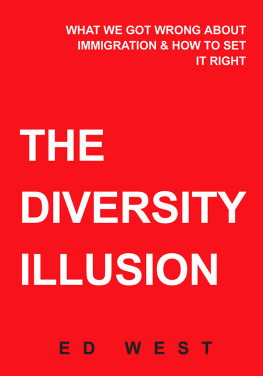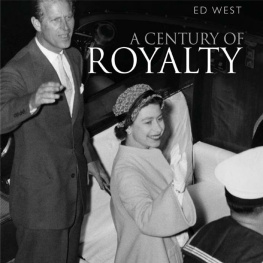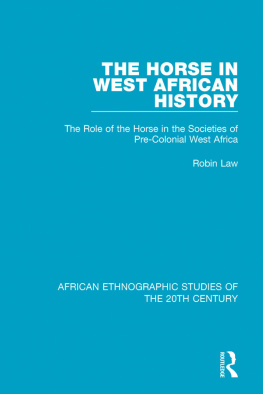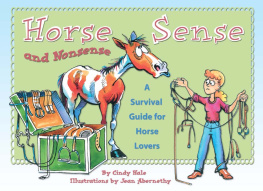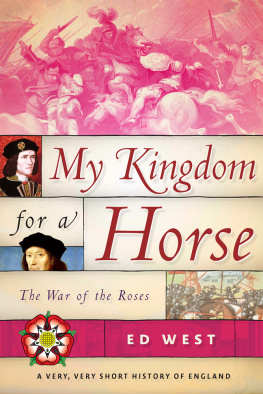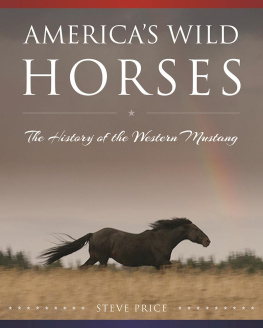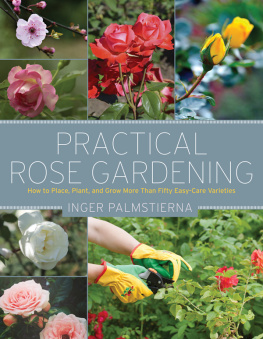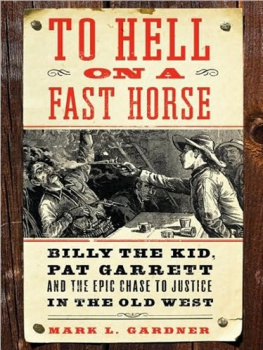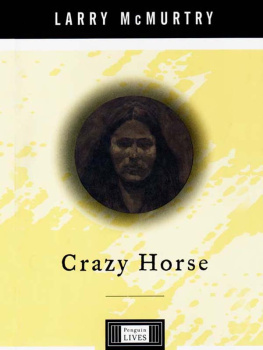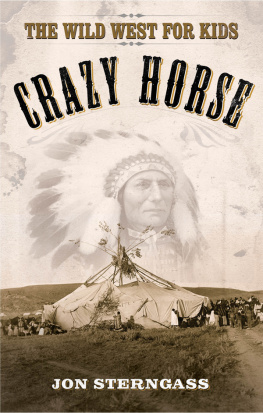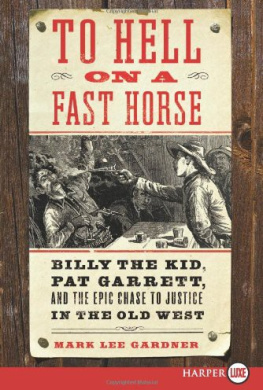Ed West - My Kingdom for a Horse: The War of the Roses
Here you can read online Ed West - My Kingdom for a Horse: The War of the Roses full text of the book (entire story) in english for free. Download pdf and epub, get meaning, cover and reviews about this ebook. year: 2018, publisher: Skyhorse Publishing, genre: Non-fiction. Description of the work, (preface) as well as reviews are available. Best literature library LitArk.com created for fans of good reading and offers a wide selection of genres:
Romance novel
Science fiction
Adventure
Detective
Science
History
Home and family
Prose
Art
Politics
Computer
Non-fiction
Religion
Business
Children
Humor
Choose a favorite category and find really read worthwhile books. Enjoy immersion in the world of imagination, feel the emotions of the characters or learn something new for yourself, make an fascinating discovery.
- Book:My Kingdom for a Horse: The War of the Roses
- Author:
- Publisher:Skyhorse Publishing
- Genre:
- Year:2018
- Rating:4 / 5
- Favourites:Add to favourites
- Your mark:
- 80
- 1
- 2
- 3
- 4
- 5
My Kingdom for a Horse: The War of the Roses: summary, description and annotation
We offer to read an annotation, description, summary or preface (depends on what the author of the book "My Kingdom for a Horse: The War of the Roses" wrote himself). If you haven't found the necessary information about the book — write in the comments, we will try to find it.
My Kingdom for a Horse: The War of the Roses — read online for free the complete book (whole text) full work
Below is the text of the book, divided by pages. System saving the place of the last page read, allows you to conveniently read the book "My Kingdom for a Horse: The War of the Roses" online for free, without having to search again every time where you left off. Put a bookmark, and you can go to the page where you finished reading at any time.
Font size:
Interval:
Bookmark:


Copyright 2018 by Ed West
All rights reserved. No part of this book may be reproduced in any manner without the express written consent of the publisher, except in the case of brief excerpts in critical reviews or articles. All inquiries should be addressed to Skyhorse Publishing, 307 West 36th Street, 11th Floor, New York, NY 10018.
Skyhorse Publishing books may be purchased in bulk at special discounts for sales promotion, corporate gifts, fund-raising, or educational purposes. Special editions can also be created to specifications. For details, contact the Special Sales Department, Skyhorse Publishing, 307 West 36th Street, 11th Floor, New York, NY 10018 or .
Skyhorse and Skyhorse Publishing are registered trademarks of Skyhorse Publishing, Inc., a Delaware corporation.
Visit our website at www.skyhorsepublishing.com.
10 9 8 7 6 5 4 3 2 1
Library of Congress Cataloging-in-Publication Data is available on file.
Cover design by Rain Saukas
Print ISBN: 978-1-5107-1989-7
Ebook ISBN: 978-1-5107-1994-1
Printed in the United States of America
Contents
Introduction
N ow is the winter of our discontent/Made glorious summer by this sun of York. As the historian Robert Tombs put it, no other country but England had, until the age of cinema, turned its national history into a popular drama, thanks to William Shakespeares series of plays. These eight histories chart the countrys dynastic conflict from 1399 to 1485, starting with the overthrow of the demented Richard II and climaxing with death of the hunchbacked villain Richard III at the Battle of Bosworth.
Richard II, known to history as being deliriously paranoidalthough, as it turned out, they were out to get himwas replaced by his cousin, the Duke of Lancaster, who took the throne as Henry IV. Then, over a period of thirty years starting in 1455, three more kings died violently, seven royal princes were killed in battle, and five more executed or murdered; thirty-one peers or their heirs also fell in the field, and twenty others were put to death. It ended when Henry Tudor, distantly related and with an extremely dubious claim, was able to take the throne as Henry VII, largely on account of still breathing. Shakespeare wrote his plays, called the Henriad, under Tudors granddaughter Elizabeth, partly as a form of propaganda.
In the bards telling, the overthrow of Richard II begins this chain of events, the Bishop of Carlisle warning that if the king is removed the blood of English shall manure the ground. However, the conflict that later became known as the War of the Roses only began in the 1450s, following English defeat in France, which led to an enormous number of extremely violent men returning home with widespread anger at the way the country was being mismanaged.
The cause of this was the insanity of Henry VI, and his weak, financially incompetent rule. In the absence of a strong king, power rested with affinities of related aristocrats and their soldiers, a Mafia society in which the ordinary people had little legal protection. The richest aristocrats commanded vast armies and led them into battle under their bannersthe White Lion of Mortimer, the Bear of the Earl of Warwick, the White Swan of the Duke of Buckingham, the Falcon and Fetterlock for Richard of York, or the Sun in Splendor for his son Edward. Where their men would go drinking, the landlords began to display their symbols by the entrance, which is how English ale houses and tavernsand so many of todays pubsgot their names.
The title of the conflict gives it a romantic feel that probably wasnt as apparent to those on the battlefield having swords shoved into their eyes. Henry IVs great-grandfather Edmund Crouchback, the brother of King Edward I, had been a crusader, and like many fighting the holy war, took the red rose as his emblem; much later Edward IIIs son Edmund, the first Duke of York, adopted the white rose as his. For this reason, the dynastic struggle in the following century is known as the War of the Roses, although neither side wore the emblems in battle, and the term wasnt used at the time. By Shakespeares period, it was known as the Quarrel of the Warring Roses and the War between the Two Roses, although the exact phrase the War or the Roses is attributed to historical novelist Sir Walter Scott in 1829.
By that stage, there was barely anyone left to fight; between 1455 and 1471, twenty-six peers were killed in battle, and thirteen were executed, while six of Edward IIIs descendants in the male line had died violently in the conflict. Contemporary Philippe de Commynes wrote that there have been seven or eight memorable battles in England, and sixty or eighty princes and lords of the blood have died violently. In 146061 alone, twelve noblemen were killed in the field and six were beheaded, a third of the English higher peerage; three dukes of Somerset died violently in a short space of time, while four generations of Percy heirs fell in battle, and four Percy brothers died violently within four short years; four members of the Courtenay family in the direct line also died between 1461 and 1471. Although by one calculation there were only twelve or thirteen weeks spent fighting spanning thirty-two years, it was enough to kill off many noble families.
It also saw the complete abandonment of chivalry, the old law regarding warfare which stated that although you could basically kill the common soldiers as much as you liked, horsemen chevalier were supposed to spare aristocratic prisoners. This code had begun to break down in the fourteenth century and, by the time of the War of the Roses, the likes of Edward IV would order their troops to spare the commons, kill the gentles, a reverse of traditional rules. After the battles, countless noblemen and knights were executed, part of a cycle of revenge in which the common soldiers didnt feature as targets.
The fourteenth century Flemish chronicler Froissart wrote of the English: They take delight in battles and slaughters. And for aristocrats, that might have been true, but for most of the population, who werent caught up in the feuds, life went on pretty much as normal. There was no ideological or religious meaning to the war, and civilians were never targeted; in fact, life was pretty good for most. Military leaders made sure armies did not damage the countryside, since there was nothing to be gained from it, and private house building continued as before. Direct taxation, which normally shoots up during war, actually decreased during this conflict. In fact, a better analogy than the Mafia might be soccer hooliganisman entirely consensual activity in which groups of violent men beat each other up just for the fun of it.
The conflict is sometimes very hard to follow, largely because almost every man involved is called either Henry, Richard, or Edward, which makes it as terrible as a soap opera. Secondly, most of the combatants are also referred to by their titles, such as York or Warwick, some changed titles during the course of the conflict, and to make things even more confusing, sometimes the battles would take place near the town after which a one of the players is named (York was killed near York alongside Salisbury and Rutland, while his son was in Salisbury). Warwicks actual name was Richard Neville, also the name of his father, the Earl of Salisbury, who was also killed near York, alongside York.
There were also three different earls of Warwick during the period, all completely different in character, and several Somersets. Also, to make it more confusing, the families involved had such a heavy death toll that one aristocrat would be killed and then his son or brotheroften with the same titlewould die in a battle a couple of years later, leaving the reader to wonder if he hadnt just been killed on the previous page. And thirdly, since this was a war among the inbred descendants of Edward IIIs five sons, all the participants were related to one another at least twice over, making the family tree utterly baffling. For that reason I tend to refer to people by their best-known titles, unless to distinguish between two brothers.
Font size:
Interval:
Bookmark:
Similar books «My Kingdom for a Horse: The War of the Roses»
Look at similar books to My Kingdom for a Horse: The War of the Roses. We have selected literature similar in name and meaning in the hope of providing readers with more options to find new, interesting, not yet read works.
Discussion, reviews of the book My Kingdom for a Horse: The War of the Roses and just readers' own opinions. Leave your comments, write what you think about the work, its meaning or the main characters. Specify what exactly you liked and what you didn't like, and why you think so.

